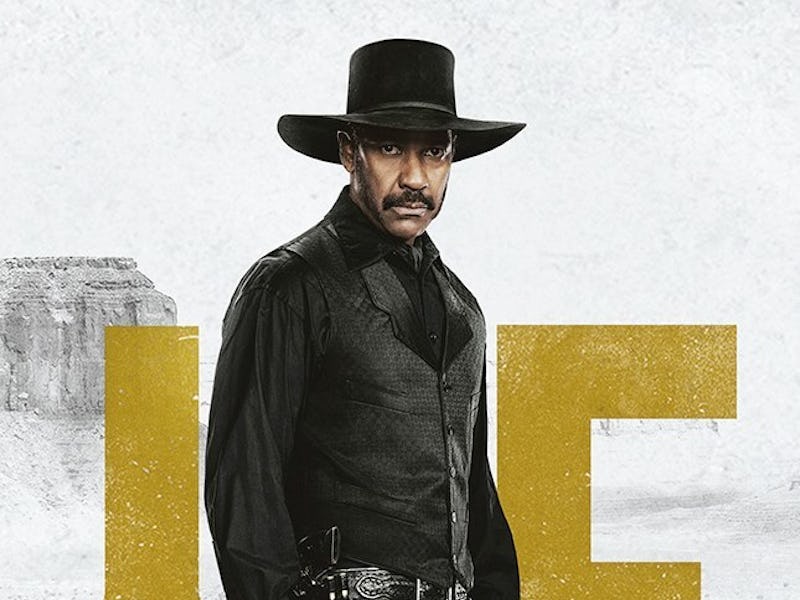'The Magnificent Seven' Is the Best Kind of Remake
The new movie from director Antoine Fuqua and starring Denzel Washington and Chris Pratt claims the western genre as its own.

Antoine Fuqua’s remake of The Magnificent Seven rides into theaters on Friday, and though audiences weren’t clamoring for an updated version of the 1960 classic (which itself was a remake of Akira Kurosawa’s 1954 masterpiece Seven Samurai), that doesn’t mean it isn’t worth checking out now that it’s here.
The most important thing about Magnificent Seven is that you don’t have to have seen Sturges’s movie to enjoy it. Denzel Washington even mentioned at the press conference for the film’s Toronto International Film Festival premiere that he hadn’t even seen the original, because it didn’t impact his performance; his character is very different than the one played by Yul Brynner, the leading man in the 1960 version.
The story, packed to the brim with western tropes, sees a hapless town of innocents terrorized by a dastardly industrialist named Bartholomew Bogue (Peter Sarsgaard). A steadfast woman (Haley Bennett), widowed by Bogue’s mercenaries, sees fit to exact some revenge by assembling a group of seven outlaws, headed by Washington’s no-nonsense Sam Chisolm, to fend off Bogue and his men when they return to take the whole town for themselves.
Besides the man-in-black gunslinger aura of Chisolm, there’s a charismatic gambler (Chris Pratt), a former Confederate sharpshooter with identity issues (Ethan Hawke), an aging hunter who’s turned towards religion to repent for his sins (Vincent D’Onofrio), an assassin who calls shots with the sharpshooter (Bying-hun Lee), a Mexican cowboy (Manuel Garcia-Rulfo), and a banished Comanche warrior (Martin Sensmeier).
It’s a gloriously mixed bag.
There’s plenty of horses, six shooters, and ten-gallon hats to go around, and Fuqua wants it that way. It’s supposed to be simple entertainment, after all. But, what makes Magnificent Seven vital now is the way in which it shows deference to the previous incarnations of the story while trying to update itself for contemporary tastes.
The western genre is vaunted territory in American cinema — dotted with indisputable contributions of masters like John Ford, Howard Hawks, Sturges, and more — but Fuqua’s raison d’être with Magnificent Seven is to try and restore an inclusive, multiracial understanding of that American mythology. He does that by creating a diverse cast and by focusing on themes like helping your fellow man and selflessness.
A perfectly assembled cast these days often deliberately caters to a broad targeted audience — and this movie is certainly no exception — but these actors all fit their parts perfectly. The banter between Hawke and Lee, D’Onofrio’s out-there rapport, Pratt’s endless amount of charm, Washington’s command of the screen — all of it just kind of fits because of that intangible chemistry factor.
The Magnificent Seven is by no means a classic, but at least it’s trying to reinvent one. It plays the western genre straight, and by that technique it erases what would have otherwise been out of place details. It shows a 2016 audience themselves in an established and waning genre like they’ve never seen before. It’s, in a word, magnificent.